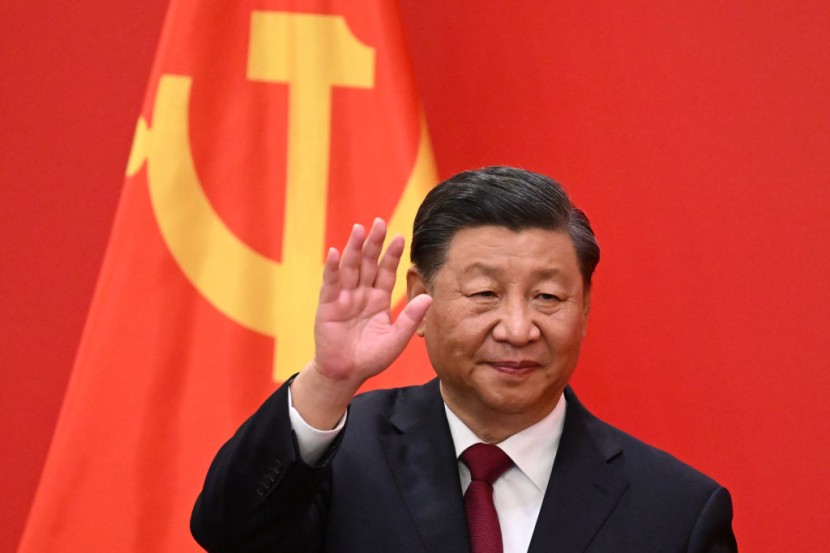
China's governing Communist Party closed its Congress on Saturday with significant revisions to the party constitution that would strengthen President Xi Jinping's role as China's leader.
A total of 2,300 delegates, all staunch party members, attended the Congress's weeklong gathering at the Great Hall of the People. Since Xi's "core" position in the country's leadership was solidified by Congress, he would be able to run for a third term, which would be extraordinary, according to DW.
However, the announcement of a third term will be made during the March parliamentary meetings. Xi abolished the two-term restriction for the presidency in 2018, ensuring his continued control.
The delegates also approved a constitutional amendment that would make it illegal to recognize Taiwan's independence. Following that, Taipei stated that Beijing was stuck in its "old" mentality."
In a statement, Taiwan's Mainland Affairs Council stated, "We urge on the new leadership of the Chinese Communist government to forsake its old attitude of "invasion and confrontation" and to address issues by peaceful, reasonable, and practical measures."
A work report, similar to a state of the country speech, was presented by Xi at the beginning of the Party Congress, and it was unanimously approved by the delegates present.
After the first meeting of the new Central Committee concludes on Sunday, Xi is anticipated to be named general secretary.
Xi Warns on New Global Tensions
Xi has warned his party members to be ready for new global tensions.Specifically, he mentioned foreign attempts to coerce, confine, and "block" China as a result of changes in the world scene.
Xi Jinping proclaimed that China must pursue "national interests first."
Wen-Ti Sung, a Taiwan Studies lecturer at the Australian National University (ANU) located in Taipei, told DW the scenario has become winner-take-all that if the outside world had hoped for a divide of power or factional power struggle within China today or coming future, Xi's actions prove that such a thing will not happen.
The expert underscored that the effort to gain favor with one group by compromising with the other has become history.
However, while the Chinese Communist Party Congress was on-going, a rare one-man rally against Xi Jinping in Beijing has sparked sympathy rallies throughout the world.
Banners accusing Mr. Xi of being a dictator were hung over a bridge in China's capital city last Thursday, BBC reported.
Images of his Anti-Xi act went viral, even though he was swiftly apprehended.
Anti-Xi Protests Grow Worldwide
Similar posters and inscriptions of Anti Xi protests have appeared on campuses in the US, UK, Europe, Australia, and worldwide.
One sign at Colby College in the US state of Maine praised the Beijing man's action and said: "We, people of China, want to spread this message that speaks our mind in places without censorship. Anti-Xi slogans like "Not My President" and "Goodbye Jinping" appear on several posters as well.
Some Anti-Xi protests accounts on Instagram and Twitter have asked their followers to take action during the week of the Communist Party Congress, echoing the call of the Beijing protesters to "strike."
Social media reports indicate that protest placards have been spotted at institutions in Hong Kong, the United Kingdom, and the United States, including Stanford University, Emory University, and Parsons School of Design.
CNN reports that anonymous Chinese nationals are operating several pro-democracy Instagram profiles that are tracking anti-Xi graffiti and banners.
About half of the three dozen reports from mainland China that were sent to Citizensdailycn, an account with 32,000 followers.
With 42,000 followers, Northern Square reported that it received eight reports of restroom slogans. Users claimed that these allegations came from Beijing, Tianjin, Shanghai, Guangzhou, Shenzhen, and Wuhan.
Outcries online and rallies in the streets have occurred before in response to policies and acts taken by the Chinese government. However, much of the outrage has been directed at regional officials, and few have made overtly personal attacks on Xi Jinping.
The expense for Xi's critics has been high. In 2016, Ren Zhiqiang, a Chinese businessman who had previously criticized Xi's response to China's original COVID-19 outbreak and branded the top leader a tyrant "clown," was sentenced to 18 years in prison on corruption cases.
Related Article : US Charges 7 Chinese Nationals Accused of Forced Repatriation Campaign, Harassment








